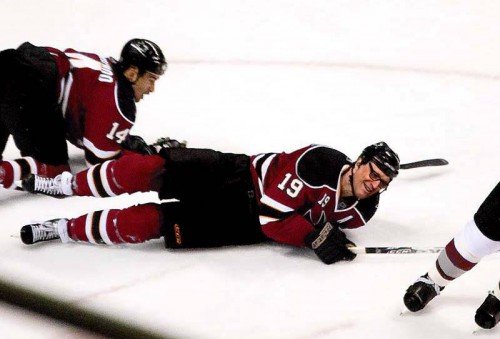31st October 2014
A reliable source
One of the biggest changes in my working life has been in communication. When I started working as a diplomat, we read newspapers, and had a “cuttings service” of news articles that were circulated on paper. I read it days after it was first distributed.
Today, I get my “newspaper” cuttings electronically, and they’re waiting for me to read first thing. I have news feeds on my mobile ‘phone. I can be constantly in touch with “events” all over the world.
With increased speed of news distribution, has come an exponential increase in volume. We can read news about politics, about celebrities, the price of oil, or the number of passes footballers make in a match, hour-by-hour or minute-by-minute.
The information doesn’t just come from media. We can get news from social networks. We can see what our friends are doing. We can learn about their opinions and, if we want, the opinions of lots of complete strangers.
But with this multiplication of news and opinion comes a major problem. Some of the information isn’t true or factually correct. The same technology that gives us access to so much information, also allows others to spread lots of disinformation, and complete falsifications.

What can we believe from all this information? Where is a reliable source?
Everybody needs to be able to distinguish truth from lies. But it is particularly important for diplomats who report on countries especially those where state media are controlled. Fortunately in most cases, we can talk direct to colleagues or senior figures in host countries, so we don’t need to rely wholly on news.
In Britain, I think we are very lucky. We have a news organisation that is committed to providing factually correct and unbiased reporting. The British Broadcasting Corporation – or just BBC – has been in existence for 92 years. It began as a radio broadcaster in Britain, and developed external services ten years later, that were particularly important during the Second World War.
Its original mandate was to “educate, inform and entertain”, as interpreted by its first Director-General, John Reith. He set high standards for public service broadcasting, and insisted that it should be independent of the government. That editorial independence was soon tested during the 1926 General Strike, when Reith refused to allow the service to be taken over by the government.
That editorial independence is set down in its editorial guidelines. I can’t better the first lines of the first section, on editorial values:
“Trust is the foundation of the BBC: we are independent, impartial and honest. We are committed to achieving the highest standards of due accuracy and impartiality and strive to avoid knowingly and materially misleading our audiences.”
Over the years it developed many services including television, monitoring of media output from around the world, and more recently in the digital age, its website. The World Service of the BBC still transmits radio around the world in English, with 27 other languages, including the Russian Service. But the BBC also has a television service, including BBC World News. I hope it is still a source for unbiased and factually correct information.
The BBC has had its fair share of controversies within Britain. It has long been attacked for its stifling power by other media outlets. It lost its monopoly status in broadcasting in 1955, when independent television was established – independent radio stations came later. It is still financed by a “licence fee” of all viewers of television (previously all households with a television set; now, anyone who watches television on any platform).
But the focus on impartiality remains. Indeed, in recent times the tenacity and tough questioning of some of its journalists have made it unpopular with the government. But British politicians know that the BBC will ask tough questions of whoever is in government, and that public trust in the BBC remains higher than in most other institutions in Britain.
I’m very glad to be able to listen to BBC radio via the internet. I am still educated by it: one of my favourite programmes is “In Our Time” or the “history of ideas”, as its presenter describes it, which I can listen to in Minsk.
In this information rich world in which we live, I am glad that I can still access an impartial source of news. It is a great antidote to have such journalism that informs, rather than seeks to influence, opinion.
* In case you were wondering whether that photo of me playing hockey was real – it is not. Here is the original.